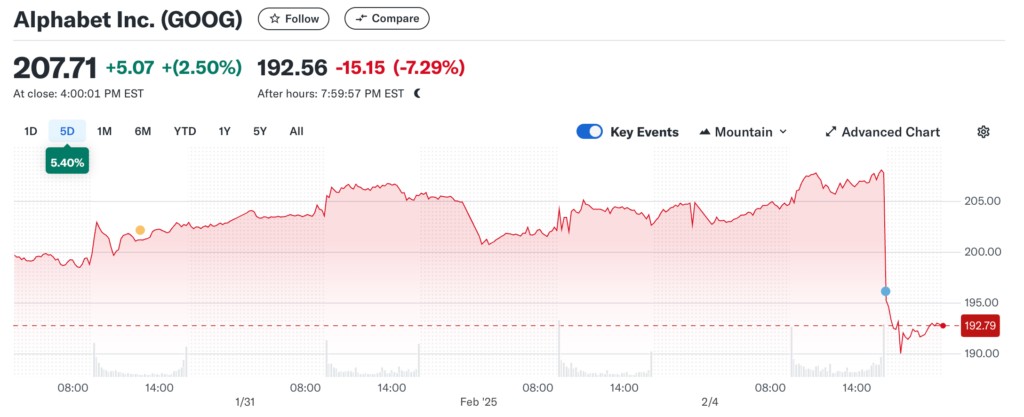The CEO of Google anticipates spending $75 billion on AI this year
Google CEO Sundar Pichai plans to allocate around $75 billion in capital expenditures for 2025 to enhance the company’s artificial intelligence offerings.
In a statement included in Alphabet’s Q4 2024 earnings report, Pichai noted, “We expect to invest approximately $75 billion in capital expenditures in 2025,” marking a 43% increase from the $32.3 billion spent in 2023. This investment aims to accelerate AI innovation and further strengthen Google’s core business operations.
Capital expenditures (or “capex”) are funds used for purchasing long-term physical or fixed assets to support business activities.
While the specific amount allocated to AI isn’t clear, the majority of the investment is expected to go towards expanding Google’s AI infrastructure. Other major tech companies, such as Meta, have also ramped up their AI-related spending, with Meta planning to invest $65 billion in AI infrastructure.
AI has become a major revenue driver for Google, contributing to a 12% year-over-year increase in overall revenue, which reached $96.5 billion.
Additionally, Google Cloud saw a 10% rise in revenue, reaching $12 billion, largely driven by continued growth in core Google Cloud Platform products, AI Infrastructure, and Generative AI Solutions.
However, Alphabet’s total revenue fell slightly short of analysts’ expectations, which were set at $96.7 billion, leading to a 7% drop in share price during after-hours trading, according to Yahoo Finance.

In a Feb. 4 investor call, Pichai downplayed the risks posed by new competitors, including the China-based AI model DeepSeek, which shook the market in late January.
Pichai told listeners of the call that Google’s Gemini 2.0 Flash models are “some of the most efficient models out there,” even when compared to DeepSeek’s v3 and R1 models.
On Jan. 27, DeepSeek spooked US markets with news that the model’s developers were able to produce a worthy competitor to American AI firms such as OpenAI at a fraction of the cost.
The firm claims it was able to develop its AI model on a shoestring budget of just under $6 million using less advanced hardware from semiconductor manufacturer Nvidia.




